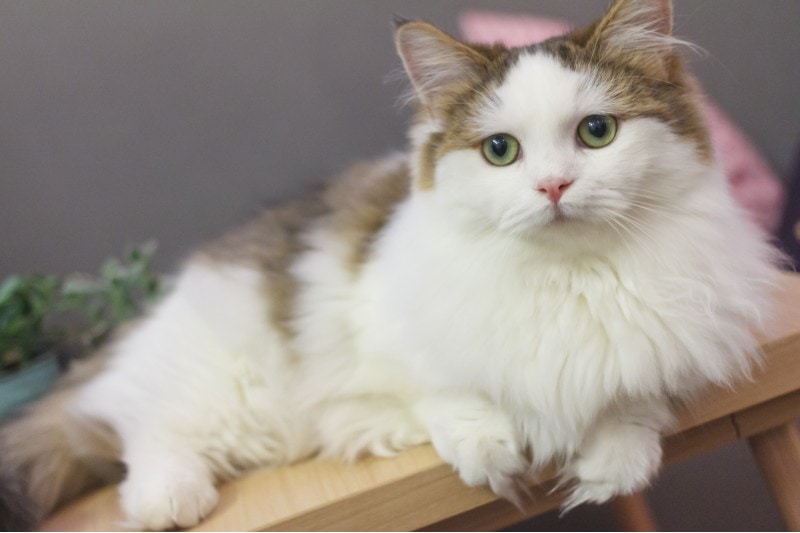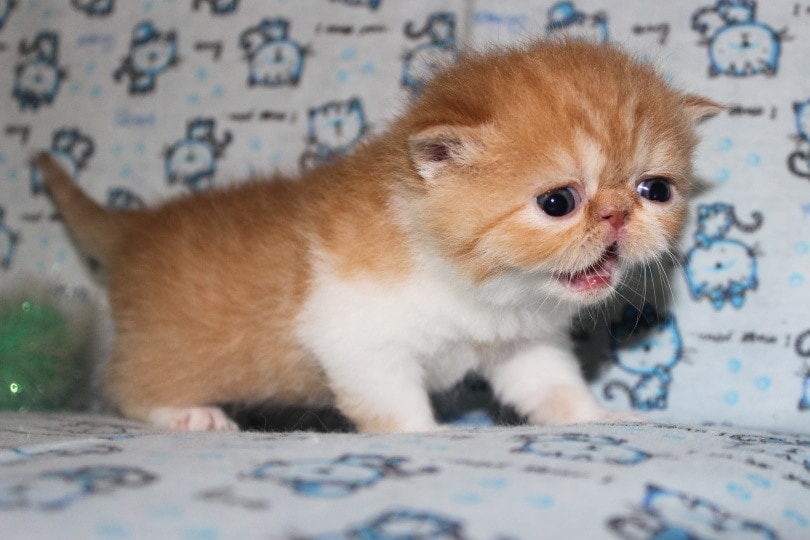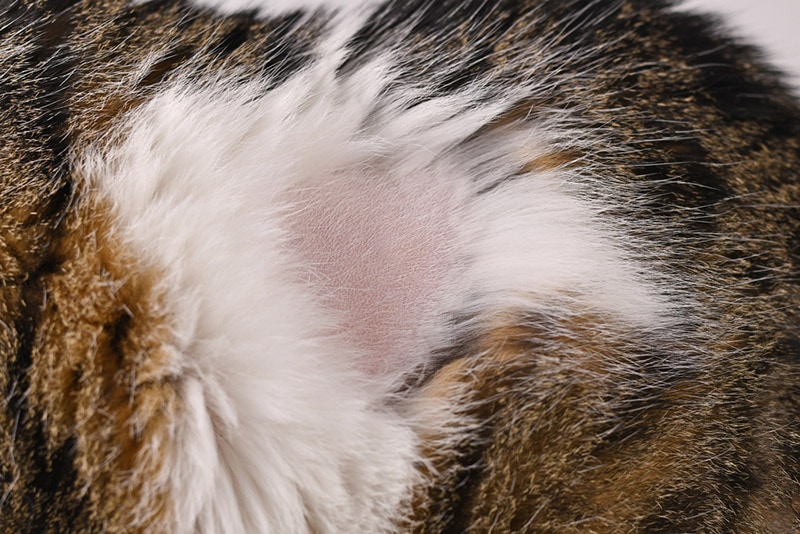Does Lysol Kill Fleas? Vet Reviewed Safety & Effectiveness
By Jordyn Alger
Updated on
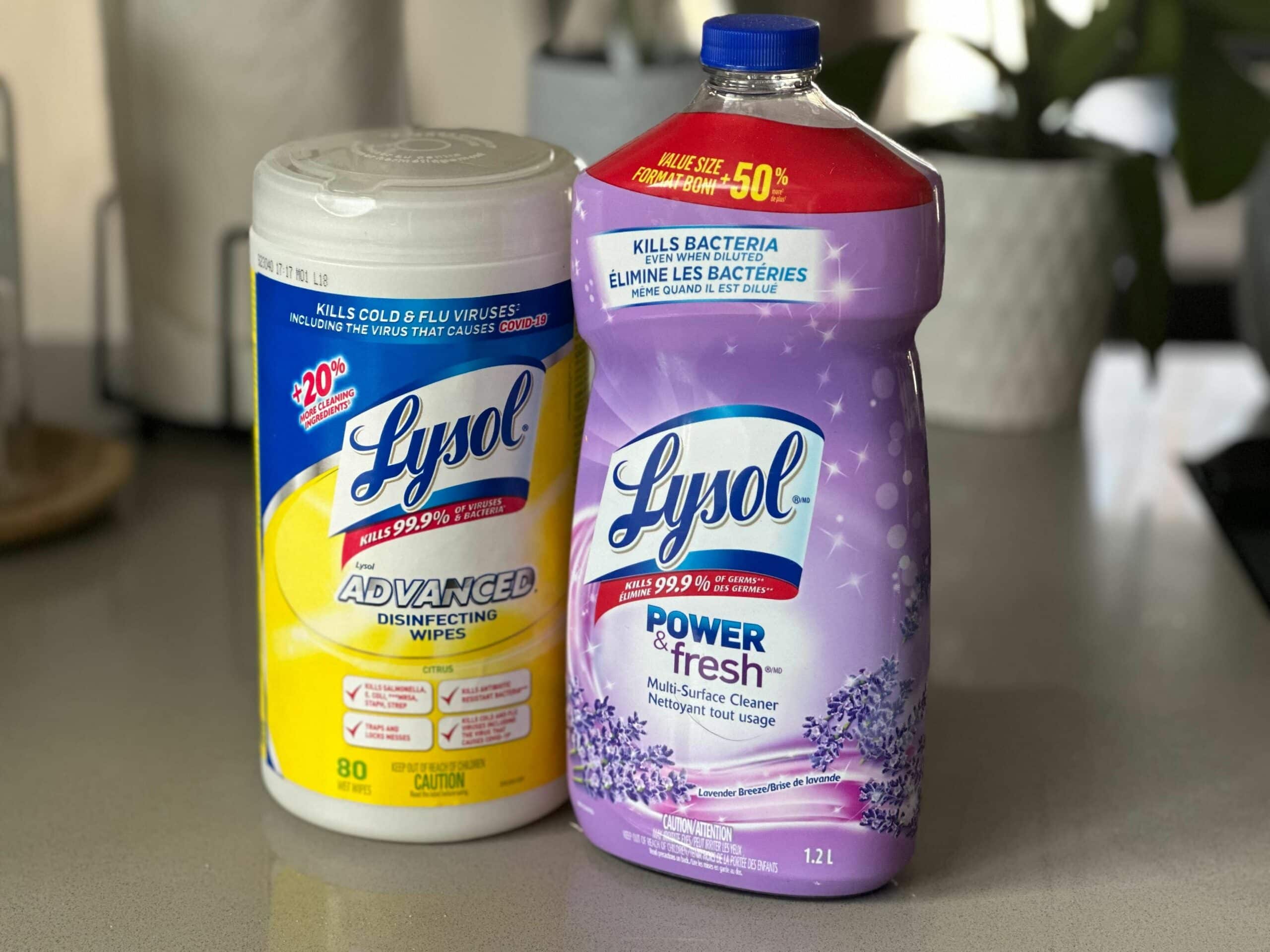
Fleas are troublesome pests that bother us and our pets. Although these parasites are tiny, their impact can be significant. To stay ahead of a flea infestation, it is crucial to take preventative measures.
Lysol is commonly used to disinfect and clean, but it may also have insecticide abilities that can kill fleas. However, killing fleas is not the purpose of Lysol, so it will not be as effective as products specifically designed for flea eradication.
How Does Lysol Kill Fleas?
Lysol can be sprayed on surfaces infested with fleas to kill them on contact. Wherever you see evidence of flea, spray Lysol to eradicate the fleas that are currently there. This can kill fleas within minutes; however, it will require multiple uses to kill several. When spraying to kill fleas, follow it up by vacuuming your home. This will clean up any dead or dying fleas and remove them from your home.
Lysol can be used as a preventative measure against fleas as well. Even if you do not have an active infestation, it is a good idea to take preventative measures to keep one from developing. Spraying Lysol around your home regularly may be helpful in that regard.
It is vital to note that Lysol should never be used on your pet. It is a cleaning product, not a pet hygiene or healthcare product. Lysol may lead to skin irritation and respiratory issues if sprayed too close to your pet. Some Lysol products contain phenol, a chemical that can be toxic to pets if ingested. Due to Lysol’s potential dangers to your pets, keeping your pet in one room of the house while you spray the rest is ideal.
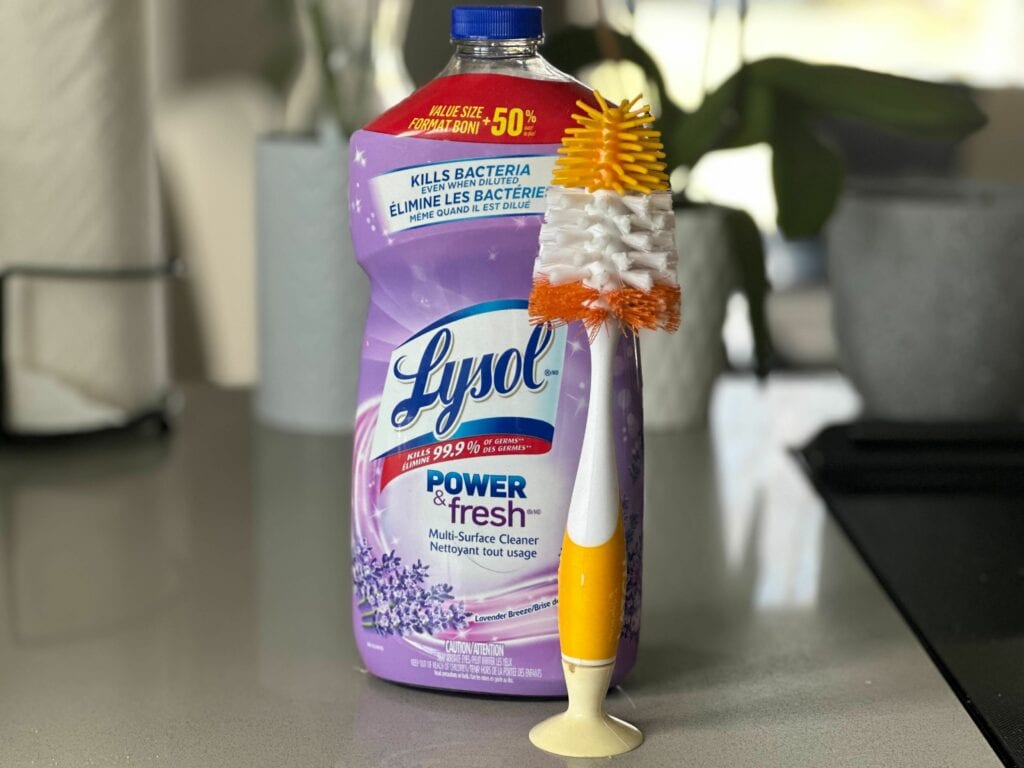
Drawbacks to Lysol
While Lysol can kill fleas, that does not mean it is the most effective product for flea management and eradication. Other products specifically developed for flea-killing purposes will be much more effective. In addition, there are some notable drawbacks to using Lysol as a flea killer.
Limited Effectiveness on Eggs and Larva
Lysol has limited effectiveness when it comes to eradicating fleas at the source. While it may kill adult fleas on contact, its ability to kill flea eggs is disputed. Similarly, it seems to be unable to kill larvae.
It is important to remember that in a flea infestation only around 5 percent of the fleas are adult fleas. The remaining life stages ( eggs, larva and pupa) are in your home. As Lysol seems to be ineffective in killing these life stages, the flea infestation will continue.
Not Advised for Bedding and Furniture
Lysol is an effective cleaner for surfaces such as floors or tables. However, it is not advised for use on common areas that fleas target, such as bedding, furniture, or carpets. It is especially not recommended for use on your pet’s bedding, another flea hot spot, due to the potential health issues it may cause.
Treatment Alternatives to Lysol
So, if Lysol is not the most effective flea solution, what are your alternatives? Thankfully, there are plenty of effective products available to kill adult and larval stages of fleas and stop the flea life cycle. These include house sprays containing insect growth regulators, adulticide house sprays and insecticides applied by professional pest control companies. This should be combined with a vet-recommended flea treatment for your pet.
After using any flea eradication method, vacuum your home thoroughly. This will help remove any eggs, larvae, or adult fleas that may have escaped the elimination. Although commercial sprays and pest control services have pet-friendly formulas, removing your pets when you apply the treatment is best to be safe.
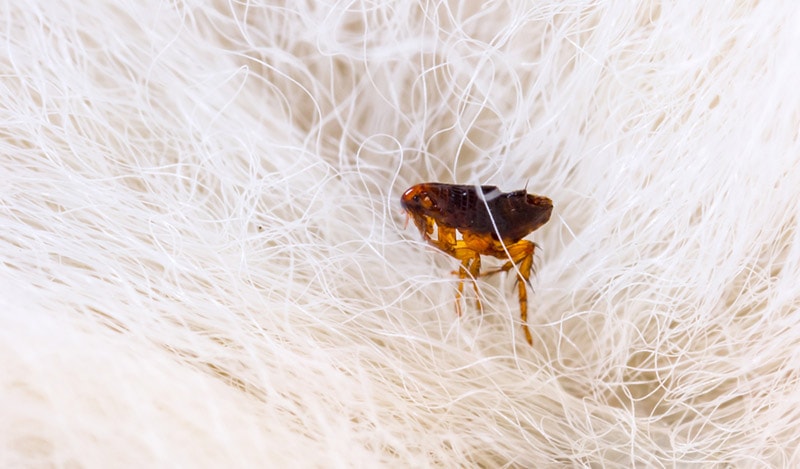
Conclusion
Ridding your home of fleas can be a difficult and lengthy process. Lysol can be used in a pinch to eradicate adult fleas on certain surfaces, but it has many drawbacks that make it a less effective flea treatment method. Thankfully, there are several alternatives that you can choose from, such as chemical insecticides.
Before treating your home for fleas, take the time to read instructions and safety procedures to ensure that you and your furry friends do not get harmed in the process. Although it’s more expensive, professional pest control can be the best option for heavy infestations that cover the interior and exterior of your home.
Related Reads:
- Does Palmolive Kill Fleas?
- Does Sevin Dust Kill Fleas? Vet-Reviewed Safety & Effectiveness Facts
- Does Lime Kill Fleas? Vet Reviewed Facts & Safety Tips
Featured Image Credit: Hepper


